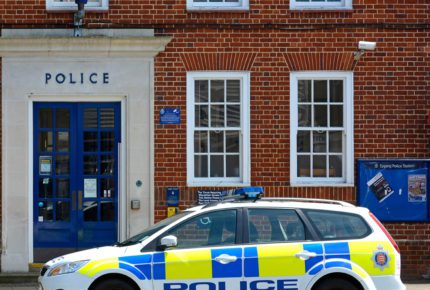

If you have been mistreated by the police, you may be wondering if there is anything that you can do about it. The short answer is ‘yes’. Police officers are bound to follow the law, and if they breach their obligations, you as a citizen have potential remedies against them. However, not all police misconduct can result in an award of compensation. In this article we explain in what circumstances you may be able to bring a civil claim against the police for compensation.
The first thing to be aware of is that if you are currently being prosecuted in relation to the incident in question, you must first wait for criminal proceedings to conclude before you can commence a civil action. Essentially, you need to clear your name in the criminal court before you can hold the police to account for their failings in the civil court. There may be an exception to this where the prosecution against you has been ongoing for a long time, and you are at risk of missing the limitation date for bringing a civil claim. If you are concerned about this, don’t wait until the deadline is close: approach a solicitor specialising in actions against the police now for advice.
What are claims against the police?
Claims against the police are civil remedies under tort law, human rights law, and equality law. The law of tort (which concerns civil wrongs) allows a person to claim for personal injury and damage to property where a person commits an actionable civil wrong against them. Human rights law entitles a person to ‘just satisfaction’ where it is proven that the state violated their human rights. Equality law also provides for the payment of compensation where the court finds that a person has experienced unlawful discrimination (for example, on the grounds of race).
Actions against the police are notoriously difficult to win because more often than not it will be your word against one or even multiple police officers.
In order to succeed, the court will need to find your evidence more credible than the officers, or you will need to have objective evidence such as CCTV footage to back up your version of events. Where there is an allegation of wrongdoing, police officers have a reputation for colluding to ensure that their evidence supports one another. In order to successfully take on this hydra, you need to have a very strong case and appear credible to the court.
The good news is that the vast majority of cases settle before trial. Your solicitor will correspond with the police’s lawyers to put your case to them in a letter of claim. Often, it will be necessary to issue court proceedings, to demonstrate that you are serious about taking your case forwards. If your case has good merits, the police will usually come to the table to negotiate an out of court settlement before the trial date arrives.
What should you do if you have been mistreated by the police?
If you have been mistreated by the police, you can either make a complaint to the police force or bring a civil claim for compensation. Sometimes, if you are contemplating a civil claim, it can be a good idea to make a complaint first, because the complaint investigation can reveal useful information that you can use to support your case.
However, if you are close to the time limit for bringing a civil claim, it may be better to proceed straight away with the claim.
The time limits for calculating civil claims against the police are as follows:
| Type of claim | Time limit |
| Judicial review | Within 3 months of the incident |
| Claim under the Equality Act 2010 | Within 6 months of the incident |
| Claim under the Human Rights Act 1998 | 1 year less one day from the incident |
| Tort claim where there is personal injury | 3 years less one day from the incident |
| Tort claim where there is no personal injury | 6 years less one day from the incident |
Calculating the time limits for actions against the police can be a little complex, because it is not always straightforward to determine on which date the incident took place.
For example, in a malicious prosecution claim, the limitation period will run from the date of the conclusion of the prosecution, whereas in an assault claim the claim would run from the date of the assault. Meanwhile, in a false imprisonment claim, the period would run from the date of the arrest. For this reason, it is important to speak to a solicitor specialising in actions against the police at the earliest possibility, to ensure that you do not miss the opportunity to lodge your claim.
What are some examples of claims that you can bring against the police?
Here are some examples of civil claims against the police:
- Assault: Police officers are allowed to use reasonable force in the execution of their duties, but that force must be proportionate in the circumstances. For example, if someone was resisting arrest, it would probably be lawful for officers to restrain them on the floor, but not to kick them and break their leg. Where a person is arrested unlawfully, e.g. in circumstances where the officer did not have a reasonable suspicion that the person was committing/had committed/or was about to commit an offence, any force used against the person would be unlawful, because the officer is acting outside of the execution of their duties.
- False imprisonment/wrongful arrest: You can bring this claim where you were wrongfully arrested and detained, to compensate you for the time that you spent behind bars. You can also claim for any loss of earnings that you suffered as a result of your detention.
- Malicious prosecution: This claim relates to a situation where you have been prosecuted without reasonable and probable cause. You would need to show that on the basis of the evidence available to the police and CPS at the time, it was unreasonable to prosecute you.
- Misfeasance in public office: This claim relates to the misuse of a position of authority. It can be brought against the police where a police officer has exploited their power. Misfeasance claims are often brought in circumstances where police officers have misused their authority to engage in sexual relationships with vulnerable persons.
- Trespass to property: A claim for trespass can be brought where the police have unlawfully entered your house. Police are allowed to search a private property where they have a warrant, or where you have invited them in. There are also other situations where the police can enter your house without your permission (for example, where they hear a cry for help, to resolve a breach of the police, or to arrest someone for a serious offence). If the police do not have lawful justification for entering your house, you may have a claim against them.
Can you sue the police for failure to investigate?
There is a general public policy bar on bringing claims against the police in negligence. This means that routine incidences of failure to investigate (for example, in relation to minor theft or damage to property) are not actionable.
However, the police are dutybound under human rights law to investigate cases that involve loss of life or serious sexual offences. The Supreme Court considered this in the case of DSD, which concerned John Worboys, the taxi cab rapist, who targeted multiple victims. In that case, Worboys’ victims alleged that he was able to remain at large due to police negligence in the investigation of the allegations that were made by his early victims. The Supreme Court found that the police do owe an investigative obligation in respect of serious crimes, which means that they must conduct a proper and thorough investigation and keep victims updated with the progress of their efforts to track down the perpetrator.
Can you sue the police for emotional distress?
If you can prove that you have suffered psychiatric harm as a result of wrongful police actions, you may be able to claim compensation in respect of it.
Usually, this will involve your solicitor requesting your medical records, and instructing an expert psychologist and/or psychiatrist to assess you and prepare a report documenting the harm that you have suffered. Your solicitor will organise this for you as part of your case. The medical expert will be able to recommend therapeutic interventions which may be able to help you recover. You will then ask the police to pay for these as part of your compensation package.
Where to get further help?
If you believe that you have been wrongfully treated by the police, you are probably feeling angry and let down by the system. At Stuart Miller Solicitors, we pride ourselves on helping clients challenge wrongful police actions. Our experienced legal team will challenge the police and demand not only compensation but also a full apology for what has taken place. Contact us for a no obligation consultation today.
OUR COMMITMENTS TO YOU:
-
Responsive
A legal expert will consult you within 24 hours of making an enquiry.
-
Empathetic
We will always treat you with trust, understanding and respect.
-
Specialised
Your case will be handled by an expert who specialises in your type of offence.
-
Proactive
We will take early action to end proceedings as soon as it is practically and legally possible to do so.
-
Engaged
You will be kept updated on your case at all times. We will provide a named contact available to answer your questions.
-
Caring
We understand this is a difficult and stressful time for you and your family. Our team will support you every step of the way.
-
Tenacious
We will never give up on your case. We fight tirelessly to get you the best possible outcome.

